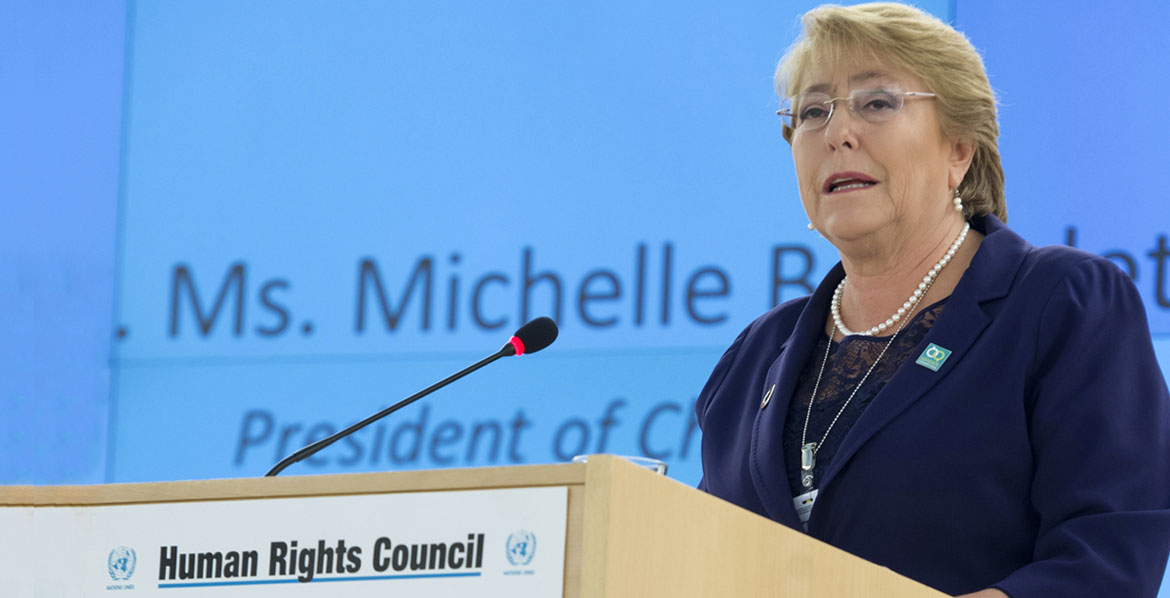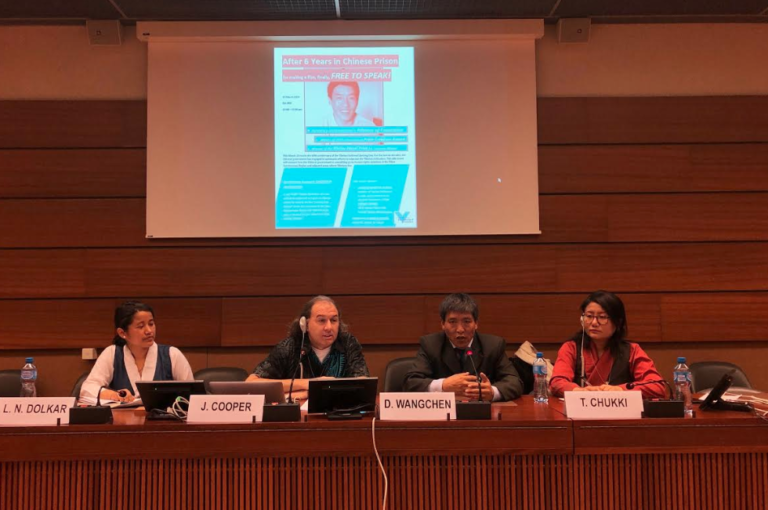 The 40th session of the United Nations Human Rights Council (UNHRC) took place in Geneva between February 25 and March 22. The Council consists of 47 members elected yearly by the General Assembly for staggered three-year terms. Notable current members include China, under scrutiny for human rights practices, particularly in the regions of Tibet and Xinjiang; and Saudi Arabia, where crucifixion is state sanctioned. The United States, which has the highest incarceration rate in the world, was due to be serving a three-year term until this year, but the Trump administration abruptly ended US involvement in June 2018, with Secretary of State Mike Pompeo calling the council a “cesspool of political bias.”
The 40th session of the United Nations Human Rights Council (UNHRC) took place in Geneva between February 25 and March 22. The Council consists of 47 members elected yearly by the General Assembly for staggered three-year terms. Notable current members include China, under scrutiny for human rights practices, particularly in the regions of Tibet and Xinjiang; and Saudi Arabia, where crucifixion is state sanctioned. The United States, which has the highest incarceration rate in the world, was due to be serving a three-year term until this year, but the Trump administration abruptly ended US involvement in June 2018, with Secretary of State Mike Pompeo calling the council a “cesspool of political bias.”
With reference to China, members of the Council had previously made 350 recommendations regarding human rights practices being conducted there. One such recommendation from the United States, made prior to them leaving the Council, called for China to “End the use of harassment, detention, arrest, and extra-legal measures such as enforced disappearance to control and silence human rights activists as well as their family members and friends.” At the 40th session, members of the Chinese delegation merely “noted” this proposal, as well as various others that called for improvement regarding the rule of law and freedoms of expression, assembly, association, and religion.

Ms Michelle Bachelet, UN High Commissioner for Human Rights,
On March 6 the UN High Commissioner for Human Rights, Ms Michelle Bachelet, told the Council that her office was continuing to seek full access to carry out an independent investigation into numerous recent reports of enforced disappearances and arbitrary detentions, particularly in Xinjiang. Back in February, the Chinese government rejected a request from the Irish government for such an investigation to be permitted. This rejection came despite a Chinese Foreign Ministry spokesperson claiming in January that UN officials would be welcome in Xinjiang so long as they obeyed Chinese law. In a typically ambiguous official statement to the Council, China welcomed anyone “free of prejudice” to visit Xinjiang or Tibet but warned of any attempts by visitors to undermine social stability in those regions.

From left: Lhagyari Namgyal Dolkar, Joshua Cooper, Dhondup Wangchen and Thinlay Chukki at a side event at the 40th session of the UN Human Rights Council in Geneva, 13 March 2019.
Photo: tibet.net
Alongside the Council session Dhondup Wangchen and a Tibetan delegation led a side event to highlight 60 years of gross human rights violations in Tibet. Dhondup, who served a six year arbitrary prison sentence for making an exposé documentary about the situation in Tibet prior to the Beijing Olympics in 2008, spoke about the ongoing suppression of human rights and freedom of expression in Tibet and paid tribute to those continuing to peacefully resist the Chinese occupation of Tibet to this day.




 Print
Print Email
Email